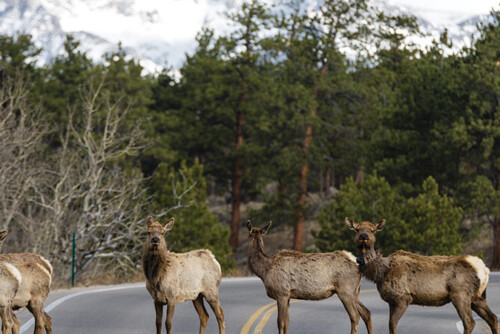Some of the most important decisions about our land, air, water, and climate are made by state, regional, and local boards and commissions tasked with protecting and managing natural resources. Since Western Resource Advocates does most of its work at those levels, it is important for us to keep in touch with the respective boards and commissions.
We talked to two WRA team members—Healthy Rivers Program Strategic Engagement Manager Orla Bannan and Western Lands Policy Fellow Jason Swann—who work closely with boards and commissions in Colorado about why their interaction with those organizations is critical to our conservation goals.
“State, regional, and local water boards can help us manage a decreasing supply with drought planning, watershed protection, and greater conservation.”
Field Notes: Orla, first tell us about the boards you engage with and the decisions they make.
Orla: I work with state, regional, and local boards that are tasked with protecting and managing Colorado’s water resources to support water conservation and address water scarcity issues in a sustainable way for all constituents. The boards address a wide range of water issues across Colorado, including the Colorado River and its tributaries, urban water conservation and efficiency, water supply and storage, river recreation, and endangered species.
Many of the boards have the capacity to provide grants or loans to a wide range of water-related projects, including agriculture, environment and recreation, conservation and land use, water storage and supply, education, and innovation.
FN: Jason, your work has focused on expanding the pool of people who are interested in serving these critical bodies by helping them find training. WRA is dedicated to helping make sure those boards and commissions are diverse and that people who serve are supported and confident in their positions.
What have you learned about how WRA can help support that work? And how will the effort contribute to connecting local diverse communities to more opportunities to engage in environmental stewardship?
Jason: By creating board and commission orientation and training, WRA can be intentional about recruiting and connecting communities of diverse identities with collaborators and partners. That effort instills confidence and helps build trust as we work to solve some of our most pressing environmental issues across the West.
FN: Orla, how do decisions about water-related projects impact our region and our communities?
Orla: Climate change is driving increased water scarcity throughout the West. Increased temperatures are impacting the timing and amount of runoff from the snowpack into rivers and increasing water demands of people and plants. State, regional, and local water boards can help us manage a decreasing supply with drought planning, watershed protection, and greater conservation.
The boards help to set policy, support legislation, and decide which projects are funded, impacting people across Colorado and the West. The responsibilities of the Colorado Water Conservation Board—Colorado’s state board—include protecting Colorado’s streams and lakes, flood mitigation, watershed protection, stream restoration, drought planning, water supply planning, and water project financing. The state board also works to protect and manage the amount of water allocated to the state of Colorado through a framework of agreements with other states and federal agencies.






